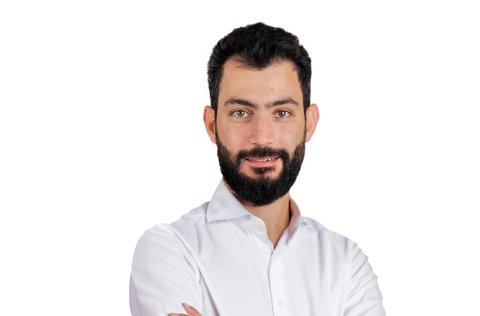Alfred Manasseh, the co-founder and Chief Metaverse Officer at Shaffra, has penned a thought leadership article outlining why AI is not a threat to humanity, and how if the technology is nurtured properly it can create an exciting and remarkable future for all mankind. 
The progress made in artificial intelligence (AI) over the past decade has made its impact even more remarkable as it shifts to the centre of global attention.
In the Middle East and North Africa (MENA) region, AI is hardwired to have a substantial impact, with estimates from PwC indicating that it could contribute approximately $320 billion to the region’s economy.
The same report suggests that the UAE will likely experience the most significant impact, with an estimated contribution of nearly 14% to its GDP by the year 2030. This demonstrates the vast opportunities that AI offers for economic growth and development.
AI has garnered significant interest for its potential to revolutionise our interactions and the digital landscape. The UAE, in particular, has observed the transformative impact of AI in healthcare, finance, and the metaverse to name a few.
In healthcare, AI plays a crucial role in tailoring treatment plans to individuals. For example, one hospital centre adopted AI to help ensure the right interventions are made. In finance, AI-driven algorithms are improving risk assessment and fraud detection. Retailers are also exploring the use of AI-powered virtual storefronts, enabling customers to browse and buy products in a more immersive way.
And most notably in the metaverse, AI is the driving force behind immersive and personalised experiences. Governments in the region are embracing this potential to enhance the efficiency, accessibility, and effectiveness of their public services.
In the UAE, the Dubai government launched the Dubai Metaverse Strategy, aimed at increasing the metaverse’s economic contribution to $4 billion by 2030 and AI plays a crucial role in this development. This comes to show that the emergence of new digital technologies is essential for elevating living standards and maintaining a thriving economy.
However, there are people who remain sceptical of AI due to concerns about job loss and fears regarding the impact of this technology on the job market.
On the contrary, artificial intelligence (AI) does not eliminate jobs; instead, it generates new opportunities for employment. As AI continues to develop, it creates the need for positions that did not exist previously, such as AI ethics officers, data protection specialists, and numerous others.
In fact, PwC intends to allocate $12 billion and recruit an additional 100,000 individuals in domains such as AI and cybersecurity by 2026. This progress is transforming the workforce, requiring a new generation of professionals who can effectively harness AI’s potential.
Even in the realm of security and privacy, AI should not be seen as a villain but rather as a protagonist. AI-powered systems facilitate advanced threat detection and mitigation strategies, enhancing the security of our online environments.
This also presents a new opportunity for reskilling and upskilling workforces. McKinsey reports that 45% of current job roles will be automated by 2030.
Additionally, the IDC predicts that corporate spending on AI will have a CAGR of 29.7% from 2022 to 2026, amounting to $6.4 billion, and enabling companies to achieve increased productivity by investing in the adoption of AI and automated processes.
The integration of AI emphasises the importance of ethics rather than undermining it. While navigating the ethical dimensions of AI, we gain knowledge in constructing equitable and impartial systems and it is our collective responsibility to shape a future where AI aligns with the values of fairness, honesty, and dignity for everyone.
This is not to say that challenges do not exist, but that they serve as an opportunity to adapt. With the projected economic influence of AI on the MENA region, particularly in the UAE where the impact is anticipated to reach approximately 14% of the GDP by 2030, choosing not to participate in the pursuit of AI adoption is not a feasible choice.
The horizon of AI stretches far beyond our current capabilities and with each passing day, new breakthroughs and possibilities emerge, empowering us to reimagine what is achievable.
According to the most recent IDC report, AI expenditure in the region will constitute 2% of the global total for 2023, which is estimated at $151.4 billion and the region is projected to experience the highest growth rate worldwide in the coming years.
The bottom line is that AI is not a threat to humanity; instead, it holds immense potential to shape a remarkable and promising future. When used responsibly, AI becomes a driving force for progress, propelling us towards a world full of endless opportunities.





